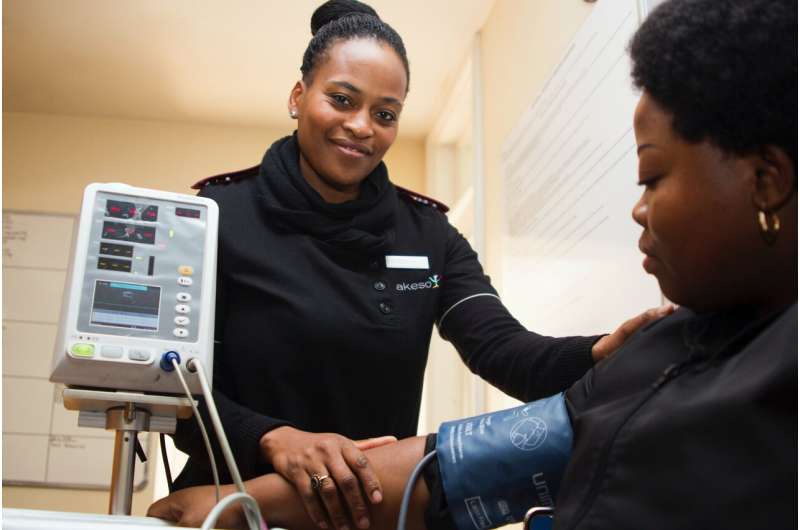Credit: Unsplash/CC0 Public Domain
Studies examining the effectiveness of treatments for COVID-19 often do not include the very populations hardest hit by the disease, according to a new review by University of Chicago Medicine researchers.
The findings, based on an analysis of all US COVID-19 treatment trials registered on ClinicalTrials.gov, were published Jan. 27 in the Journal of General Internal Medicine.
"This study highlights the blind spot in how clinical trials are done in the United States," said senior author Neda Laiteerapong, MD, MS, a general internist and associate director of the Center for Chronic Disease Research and Policy at the University of Chicago. "Researchers, hospitals and pharmaceutical companies need to think hard about their commitment to improving the health of all people."
Since the pandemic began, certain communities have been disproportionately affected by COVID-19, with Black and Hispanic patients being 30% to 50% more likely than whites to test positive for COVID-19. Researchers attribute this to several factors, including systemic health disparities, working frontline jobs and living in multigenerational households.
The team examined 303 active U.S. COVID-19 treatment trials involving more than 92,000 patients and used Census data from the 2015 American Community Survey to estimate the proportion of Black and Hispanic individuals who could be potentially recruited from the geographic catchment area of each study's recruitment hospital. This study did not include data on COVID-19 prevention studies, such as those testing vaccine candidates.
The researchers found the studies were being undertaken at hospitals that less frequently cared for Black and Hispanic patients: Only about 17% of these hospitals' patients were Black and 14% were Hispanic. There are several reasons why this may be happening, the researchers theorize.
"Smaller community hospitals may have larger communities of color but may not be equipped to set up these sorts of trials for infectious diseases," said Sukarn Chokkara, a second-year medical student at the University of Chicago Pritzker School of Medicine and lead author of the paper.
These same institutions may lack the experienced research staff and pharmaceutical company relationships needed to conduct clinical trials. Meanwhile, it can be burdensome for larger institutions designing clinical trials to implement study sites at smaller hospitals. Recruiting minority populations also frequently requires cultural tailoring and awareness of the legacy of discrimination and unethical medical research.
After conducting their cross-sectional analysis of non-observational COVID-19 clinical trials, the team also found that:
- 51% of trials excluded patients with non-severe comorbid diseases, such as diabetes.
- About 60% of trials excluded pregnant women and/or required using contraception.
- 47% of trials excluded lactating women.
- 95% of trials excluded children less than 18 years old.
Medically complex patients, pregnant women, lactating women and children are routinely excluded from clinical trials because these groups are viewed as potentially complicating the work of researchers in understanding and evaluating a new treatment, along with concerns about the unknown long-term consequences of a treatment. These exclusions, however, lead to unintended consequences, Laiteerapong said.
"Given how little is known about COVID-19, being overly cautious with these populations means we have little evidence as to how to actually take care of them when they do contract SARS-CoV-2," she said.
One group that was sought out in COVID-19 treatment trials was older Americans: 86% of the studies included people over 85 years old.
The researchers say more inclusive studies are possible if the clinical trials community is diligent about recruiting populations not usually represented.
"Greater effort is needed to develop and study treatments in vulnerable populations, and this is going to take a long-term commitment to prioritize health equity," said Chokkara.
"Examining the inclusivity of US trials of COVID-19 treatment" was written by Sukarn Chokkara, Anna Volerman, Siddhi Ramesh and Neda Laiteerapong of the University of Chicago.
More information: Sukarn Chokkara et al, Examining the Inclusivity of US Trials of COVID-19 Treatment, Journal of General Internal Medicine (2021). DOI: 10.1007/s11606-020-06566-8
Journal information: Journal of General Internal Medicine
Provided by University of Chicago Medical Center
























